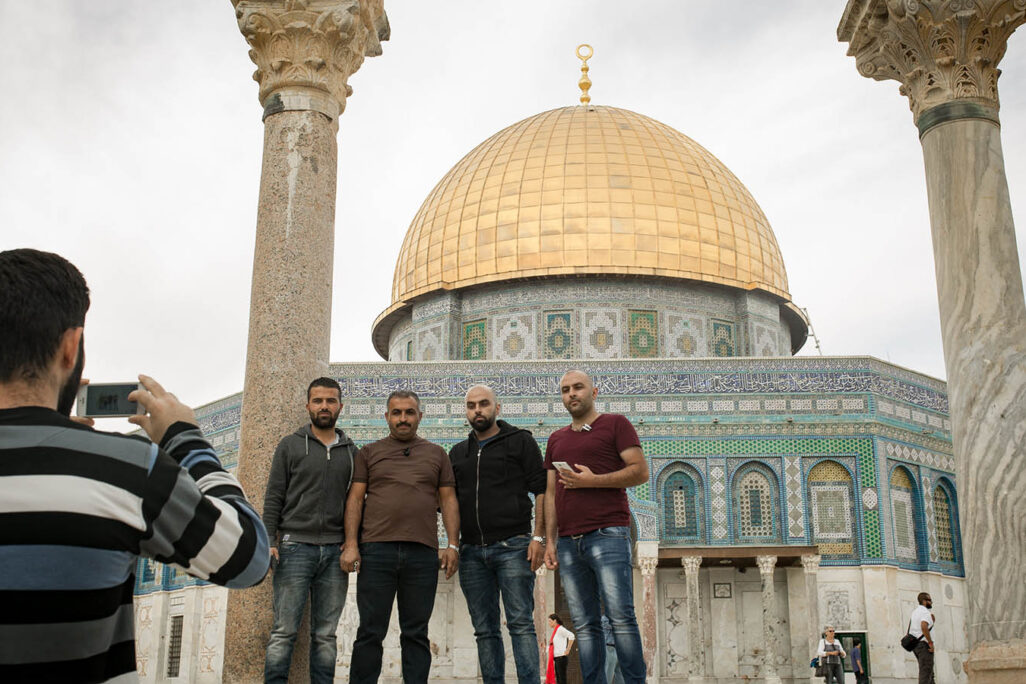
The peace agreement with the United Arab Emirates will open a huge market for the Israeli tourism world: Millions of Muslims, many of whom have already visited Mecca and Medina, dream of reaching the third holiest site in the Muslim faith – the Al-Aqsa Mosque. As with Christian pilgrims, this market holds enormous economic potential.
"This is my dream. In the past, I tried to organize delegations from Dubai to Israel through the Foreign Ministry, and I was unsuccessful," Ihab Suleiman, a tour guide and guide, tells Davar. "I had a group from Morocco. Muslims whose dream was to come to Israel and they were unable. They went up to the lookout over Al Aqsa from the Mount of Olives and started to cry."
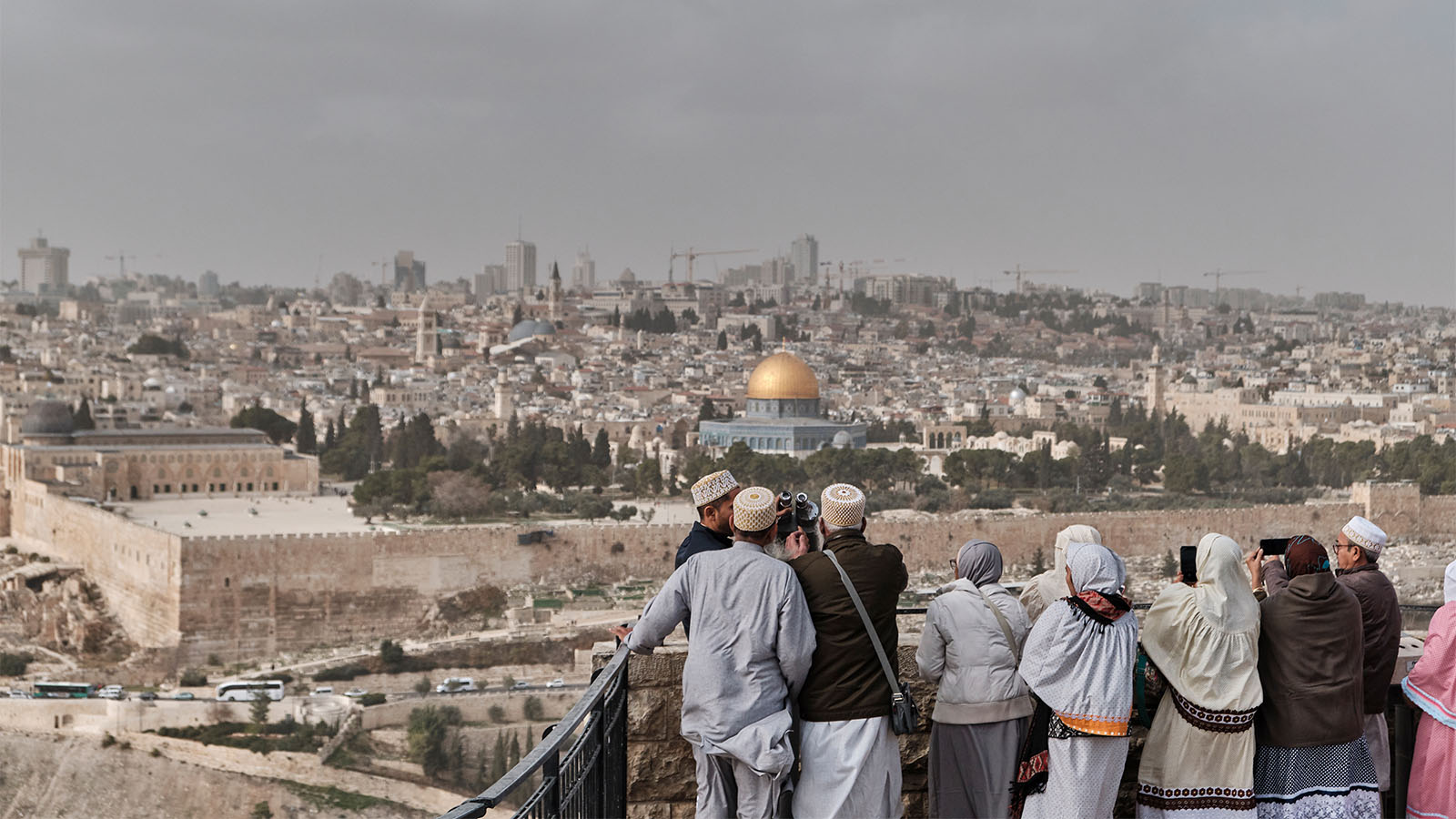
The agreement includes the opening of direct flights between the two countries and explicitly states the possibility of Muslims visiting the Al Aqsa Mosque. President Trump's son-in-law, Jared Kushner, the special envoy to the Middle East, also said in an interview with CNN that "a lot of Muslims are excited that they can now fly through Dubai to Tel Aviv to go and visit the Al-Aqsa Mosque."
We have the most tremendous potential in the world: The sea and the holy sites."
Beyond the regional political impact and far-reaching policy implicationsof the agreement, Yehuda Zafrani (56), tourism and aviation expert and tourism director of the Hot Consumer Club, is ready to realize the potential of two million Muslim Arab incoming tourists a year.
Eventually, the COVID-19 crisis will pass
"In Israel, in 2019, we reached record high tourism numbers. Over 4.5 million tourists entered Israel and over 9 million Israelis travelled abroad. Nearly 25 million passengers passed through our border crossings, mainly at Ben Gurion Airport, and close to 25 billion shekels entered the country in the tourism industry. We know that COVID-19 is creating a crisis, but eventually it will pass.”
Zafrani, who also serves as a lecturer in tourism at the University of Haifa and at Umm al-Fahm and Tamra colleges, thinks that Israel has a potential to reach 10 million tourists a year and says that the issue is being addressed by the Israeli government. "Cyprus has a population of 800,000 and has 4 million tourists a year," says Zafrani. If we equate this with Israel, this means that 36 million tourists would visit the country each year. "What does Cyprus have that we don’t? The sea? We have the most tremendous potential in the world: The sea and the holy sites."
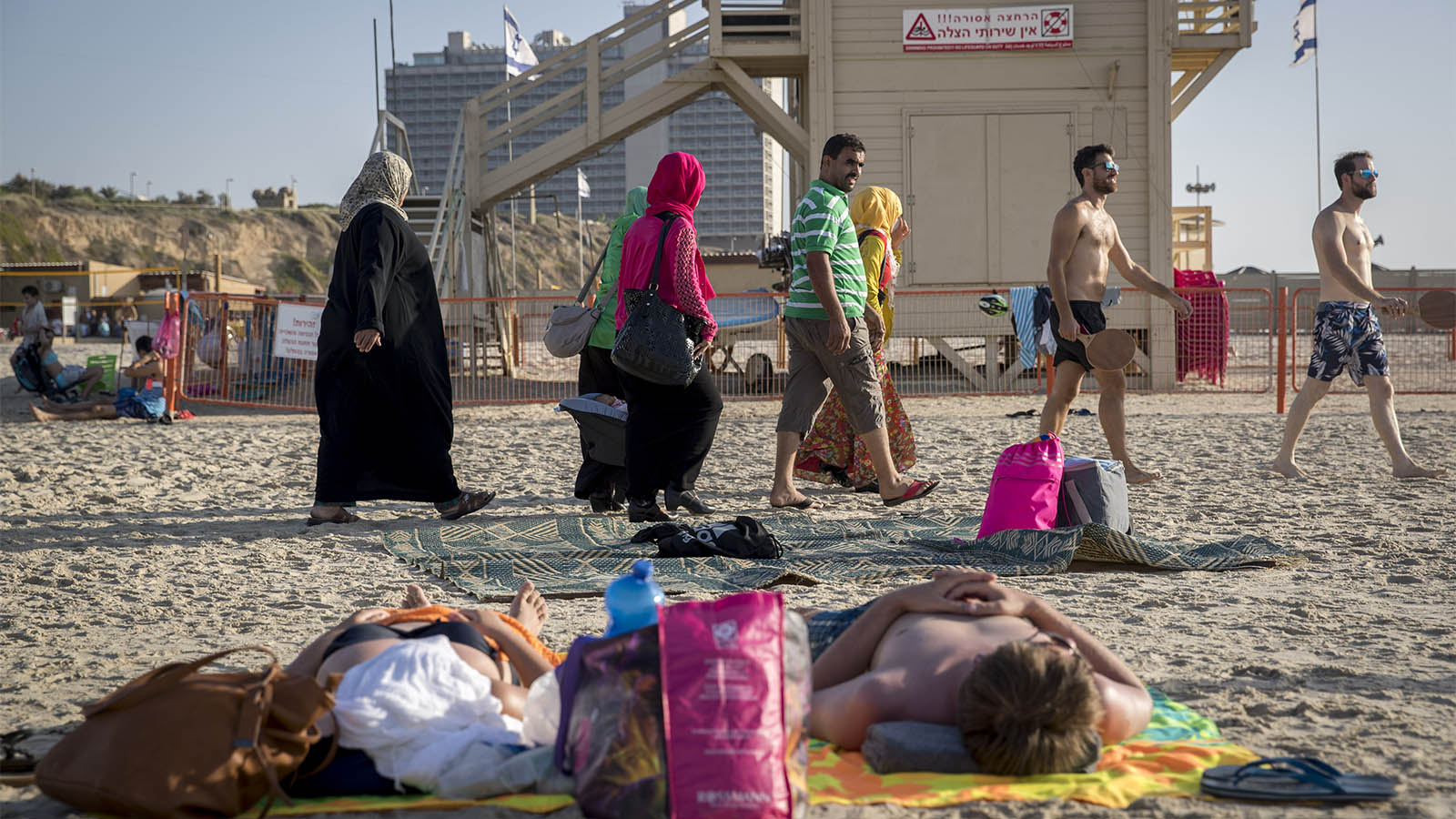
Potential for two million Muslim tourists a year
"Four, maybe five years ago, Chinese tourism to Israel stood at about 30,000 tourists a year. In 2019 there were almost 200,000 tourists, and within three to four years we were expected to have half a million Chinese tourists a year. Today, there is great potential for increasing the scope of Muslim Arab tourism. For several years I have called on the Minister of Tourism to address the issue, and as soon as the peace agreements take shape we will see the first waves of tourists. If it goes similarly to Chinese tourists, with proper management, the potential is for two million Muslim tourists a year in Israel. Muslim tourism is an important market segment of religious tourism, just like Christian pilgrims."
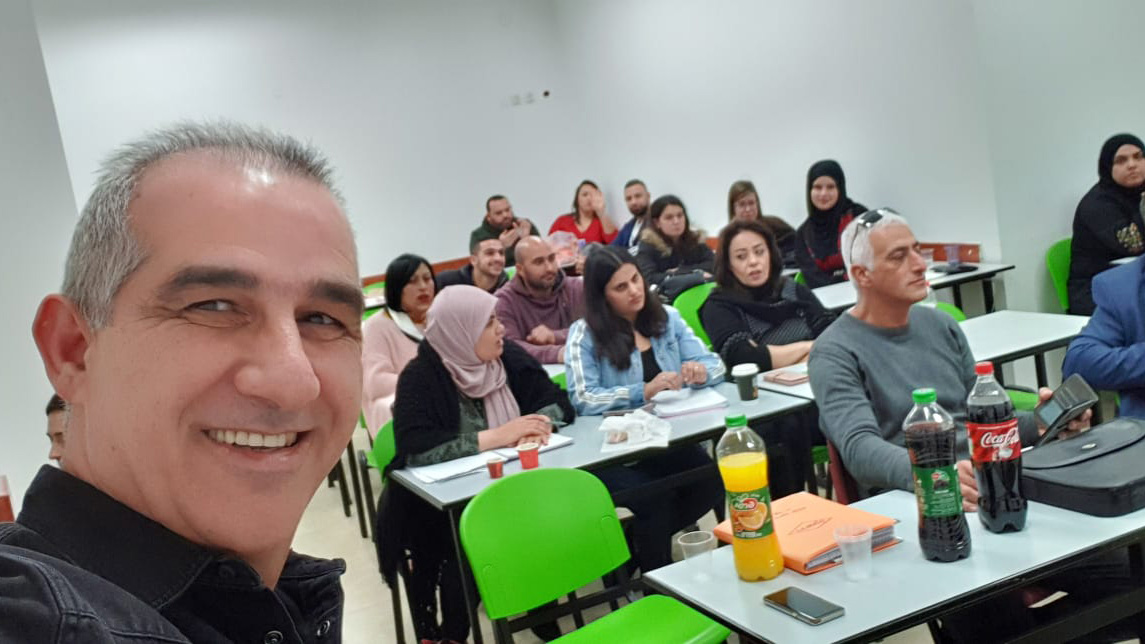
"Today, Muslim tourism is weak. There are peace agreements with Jordan and Egypt, but there is almost no tourism from there. The agreement with the United Arab Emirates will open the Gulf states, with an emphasis on Saudi Arabia. Northern African countries like Morocco are also possibilities and furthermore, when the President of Lebanon said recently that he does not rule out an agreement with Israel, that scenario would cause fundamental change in everything that happens in the region. We wouldn’t need more flights, but rather vehicles. We would see Kiryat Shmona (the city where Zafrani grew up) and Metula become important parts of an economic-commercial axis.”
"Already today, under the radar, there is medical tourism from the Gulf and they are staying in hospitals or hotels near the hospitals. If we act properly to reach our goals, we will see a record of Muslim tourism in the country. It is no longer a dream – we can see it coming to pass."
We need to be prepared
"The state must meet five aims in order to succeed. First of all, the government must decide that the development of Islamic tourism in Israel is a national priority. Second, they must allocate a marketing budget abroad that is intended exclusively for Arab countries and targeted only at them, just as we did with Christian pilgrims. Third, the infrastructure must be adapted – the Arabic language is integrated into public signage, but more needs to be done, to prepare dedicated routes for example. The fourth aim is the integration of the world of tourism and the tourism professions into the Israeli education system."
"The fifth aim is educational. We are located in the Middle East. We need to know and recognize this. Get to know our neighbors. The Ministry of Tourism needs to lead more tours of Arab society in Israel. Like the "Village Visits" campaign in the Israel’s Druze communities. We have to do the same in Arab communities."
Israelis and Israel are ready to receive millions of Muslim tourists."
According to an incoming tourism survey that the Ministry of Tourism conducted in 2018, about 98,000 Muslim tourists arrived in Israel two years ago. Of the Muslim tourists who arrived, 57% arrived as part of an organized trip, 40.5% independently and 2.5% as part of a tour package. The three sites that were most preferred by Muslim tourists are the Al-Aqsa Mosque, the Cave of the Patriarchs and the Mount of Olives. Eighty-seven percent of our Muslim tourists are in hotels and holiday villages. 9.1% stay with friends and relatives.
The standards have to change
Ihab Suleiman is a tour guide. In 2019, he guided groups of Muslim tourists from Indonesia, Malaysia, Singapore, China, South Africa and the United States. About 3,000 Muslims arrive in Israel from England each year for the last ten days of Ramadan. Full flights also arrived from Turkey every weekend during Ramadan. Suleiman claims that the arrival of tourists from the Gulf States will require a real change in what is considered good customer service in Israel, which until now has not had standards that meet the expectations of wealthy travelers from that region.
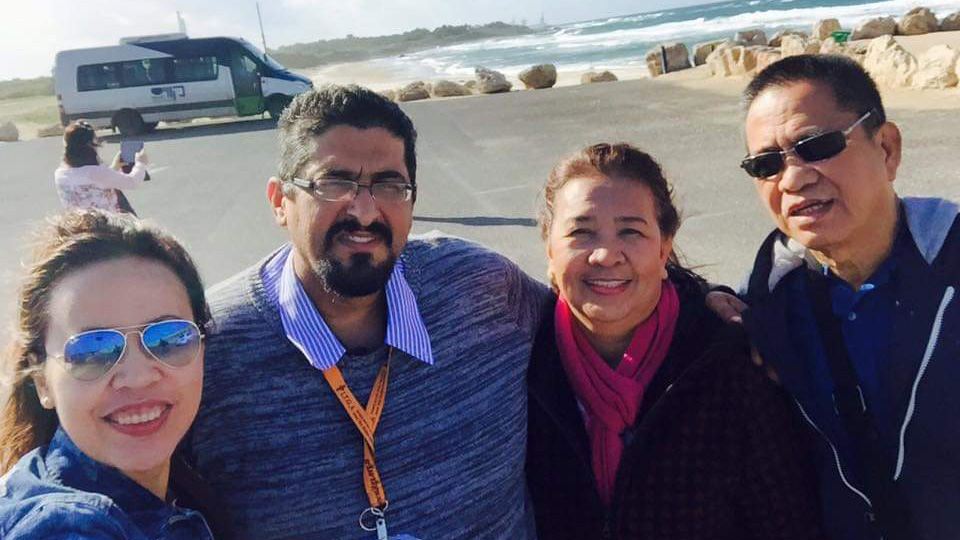
"The hotels in Tel Aviv, Waldorf Astoria or King David in Jerusalem, which are the most prestigious hotels in the country, are considered simple by the standards of Saudi Arabia and the United Arab Emirates. I do not know how it will go for the Ministry of Tourism. I’ve been there and it is really a different world."
"I was in Dubai and Qatar. The service at their hotels is extravagant. You have a Bell Boy there, there are valets who park the car in the parking lot. They serve light refreshments. Before you even reach the check-in desk there’s someone who greets you and guides you to a sofa and takes your passport to check in. Then there will be someone else to take your luggage to the room. They will give you a short tour of the hotel and you’ll see everything. It is not like here, where you’ll receive an explanation at check in and you have to figure it out from there. After the tour you will be escorted to your room where they’ll explain to you about the room and what's in it. There's a full bar inside the room. If you use it they’ll immediately refill it."
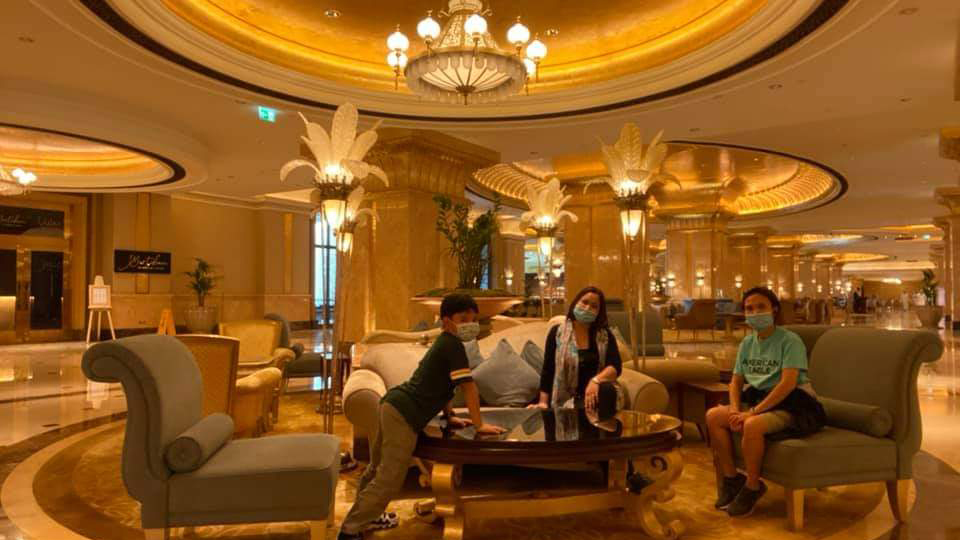
"Inside the dining hall there are several restaurants. In Dubai, one of the hotels had 4-5 restaurants inside the dining hall itself. Concierge organizes tours for you and explains everything in the area if you want to walk around alone, and there is an organized trip or private guide who gives you service. This doesn’t exist in Israel, and if it does, then not at the level they have there."
Suleiman has not worked since tourists stopped coming to the country due to COVID-19. He has received three government grants and somehow manages to support his five children, with a little help from his family. He and his colleagues at the Tour Guides Association are waging a campaign against the government to receive recognition for the harm to their livelihoods. They are demanding assistance, but so far they have not received a response or an answer. "If the situation remains like this then we will have to find another job. I will manage financially but there are those with debts."
Not everything is looking up
During the conversations with Zafrani and Suleiman, there was a feeling that one could dream of a new Middle East. The example thrown around in the room created a real image of economic prosperity in the field of tourism in Israel, an area that has suffered severe damage due to the COVID-19 plague. But, there were those who took care to bring us back to earth.
The hostile Palestinian reactions to the Trump-Zayed-Netanyahu agreement are not directed only at Israel. The Mufti of Jerusalem, Sheikh Muhammad Hussein, issued a ruling stating that citizens of the United Arab Emirates are not allowed to pray in the al-Aqsa Mosque. This reaction was reminiscent of the media visit of the most famous Muslim tourist in Israel in 2019, the Saudi blogger Muhammad Saud. Saud was greeted with plastic chairs thrown at him, receiving spit and epithets from his Palestinian brothers, who denounced him for collaborating with Israel and promoting normalization over their heads. Humiliatingly, the events were filmed and uploaded to the web. Perhaps this is a more realistic picture of the future of how tourists will be received from the Gulf.
Israeli Jews of Moroccan descent
Suleiman thinks that the Jews in the country will be able to host Muslim tourists. "I was once in Tel Aviv and Jaffa with a group from Morocco and Tunisia. When they entered one of the places, they suddenly started talking to the Jewish Moroccans living in the country. In their language. They told each other where they were from and what they had gone through to and how they got here."
Zafrani also thinks this is possible. "Corona helped us. I go out in the evening for a walk along the sea (in Netanya) and you know what I see? People cannot travel abroad. So at sea, at the beach, you see an ultra-Orthodox Jewish family and alongside them a Muslim family with headscarves, a secular Israeli and a secular Arab, all at sea, having fun."
Security issues
Zafrani is not worried about the strict security arrangements in the country. "I do not hear about degrading checks at Ben Gurion Airport. If there is a specific case then it is dealt with. From a security point of view, when I travel to Italy, do you know how I am strip-searched? How much I’m humiliated? After 9/11 the whole world changed. You go to Europe and are strip searched. I think that as more tourists come in from the Arab countries, the sensitivity will only grow and we’ll know how to do it better. No one wants it to be at the expense of security, because we are a threatened country, but the more tourists we bring in from Islamic countries the more we will benefit. Israelis and Israel are ready to receive millions of Muslim tourists."






